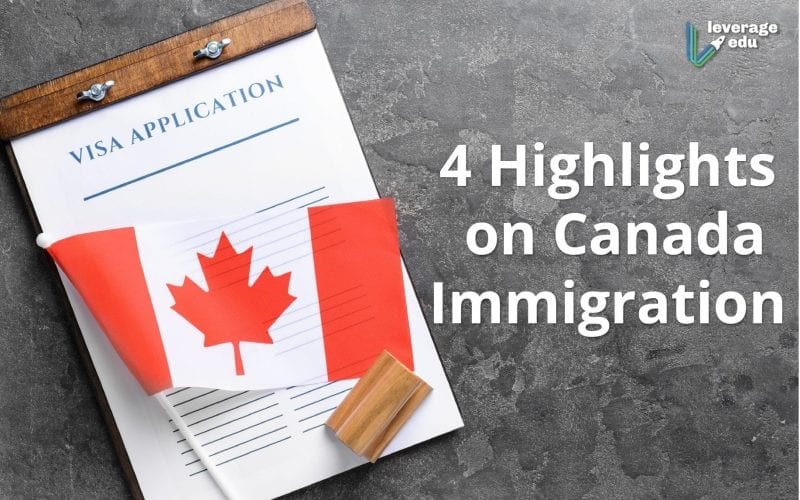Recently, Canada released its annual report to Parliament on immigration 2020. The report is released to the parliament as well as the public so as to provide them with an overview of the latest immigration developments in Canada. The annual report provides a clear understanding of the highlights on Canada immigration. The Canadian government aims to move forward with their immigration plans in 2021-2023 and the federal government aims to realize those targets.
Here we present you, the four main highlights on Canada immigration from the annual report:
Over 1 million newcomers were welcomed by Canada in 2019
One of the important points to keep in mind with regard to the highlights on Canada immigration is that more than 3,41,000 permanent residents were welcomed to Canada and over 400,000 people received study permits in 2019 indicating that most newcomers come on a temporary basis rather than as permanent residents.
However, Canada’s immigration plan for 2021-2023 has a plan for permanent resident admissions as well.
Around 200,000 immigrants arrived under economic class in 2019
It was observed that almost 60% of the immigrants come under economic class which will continue to remain the same in 2021-2023. In 2019, out of 200,000 immigrants, only 90,000 arrived through express entry. Due to the disproportionate number of people settling down in larger states, the country has launched a Provincial Nominee Program (PNP) which aims to encourage people to settle in the smaller provinces of the country as well.
PNP includes provinces and territories such as Newfoundland, Labrador, PEI, Nova Scotia, Yukon etc.
Check Out: Scholarships in Canada
Immigration, Refugees and Citizenship Canada is Tackling Family Class Backlogs
Another important point brought to our attention through the highlights on Canada immigration is that the Immigration, Refugees and Citizenship Canada (IRCC) has a standard time of 12 months for processing family applications received. Reports state that at the end of 2015, IRCC had backlogs of 77,000 under spouses, children and family category with a processing time of 21 months which fell down to 13 months by the end of 2019. Though the processing had slowed down due to the coronavirus pandemic, IRCC aims to accelerate their process and process 6,000 applications per month by the end of 2020.
Canada Welcomes More Francophone Immigrants
One more key point we gathered from the highlights on Canada immigration is that the IRCC has always been on the forefront for welcoming more francophone immigrants into the country. However, they have struggled to do so in the past decades but they still continue to work upon it.
Must Read: Canada Approves 56,000 Study Permits in the First Stage
We got to notice the recent changes made by IRCC, through the highlights on Canada immigration, that, it rewards more points to French-speaking express entry candidates. IRCC has also launched a Francophone Immigration Strategy and invested more money into the same which resulted in an increase in Francophone immigrants outside of Quebec by one percent in the last year. Though the number is still low, it is a big achievement in comparison to all the previous years. IRCC estimates that if they keep going like this, they will achieve its Francophone immigrants of 4.4% to all the immigrants settling out of Quebec by 2023. Stay tuned to Leverage Edu for more such global educational updates.

 One app for all your study abroad needs
One app for all your study abroad needs






















 45,000+ students realised their study abroad dream with us. Take the first step today.
45,000+ students realised their study abroad dream with us. Take the first step today.

